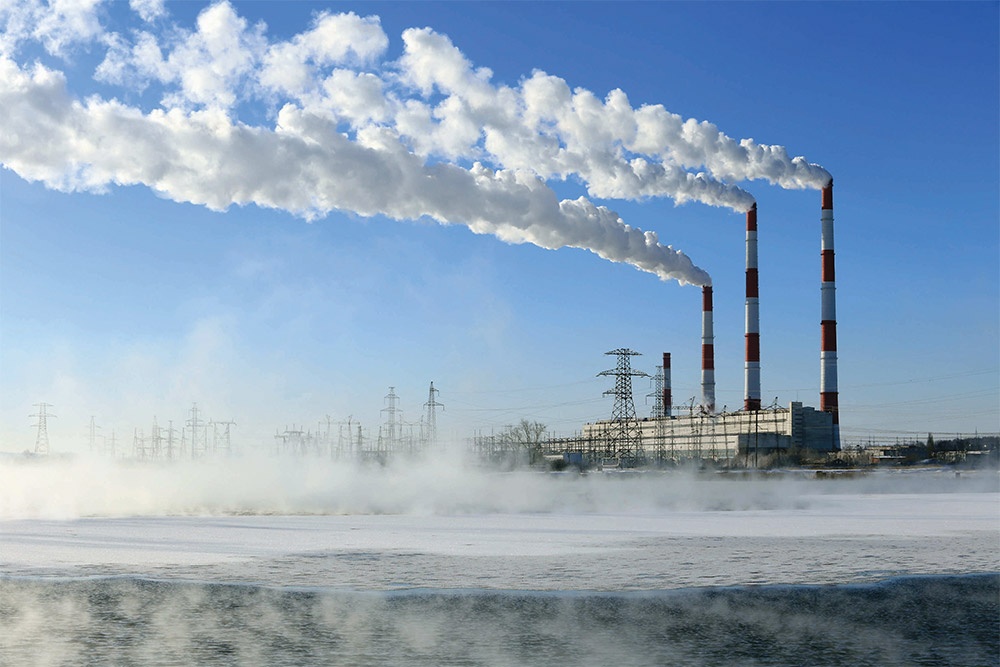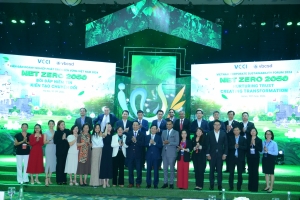Vietnam underlines net-zero desire
 |
| Vietnam underlines net-zero desire |
The government last week asked ministries, agencies, and localities to carry out strategies on realising Vietnam’s commitment to achieving net-zero emissions, as pledged in 2021.
To fuel these efforts, the government has established a secretariat, with Minister of Natural Resources and Environment Do Duc Duy acting as the secretariat’s head. The secretariat is in charge of implementing Vietnam’s political declaration on the Just Energy Transition Partnership (JETP).
“We must strongly deploy the JETP and proactively work with the International Partners Group (IPG) and the Glasgow Financial Alliance for Net Zero (GFANZ) and other stakeholders about their support for Vietnam to implement net-zero emissions,” stated Prime Minister Pham Minh Chinh.
The secretariat is to formulate and update the JETP’s resource mobilisation plan for implementation within at least over the next five years. The plan will be revised based on Vietnam’s actual requirements for investment in energy transition and building a low-carbon economy.
The secretariat is also to work with the IPG and the GFANZ for plans to provide technical and financial assistance in this regard.
At the end of 2022, leaders from Vietnam and the IPG, including the EU, the United Kingdom, Canada, the United States, Japan, and others agreed on the JETP, worth $15.5 billion over 3-5 years to support Vietnam’s green transition. The partnership will support Vietnam to deliver on its ambitious net-zero 2050 goal, accelerate the peaking of its greenhouse gas emissions and transition away from fossil fuels.
Initial contributions to the Vietnam JETP include $7.75 billion in pledges from the IPG together with the Asian Development Bank and the International Finance Corporation.
In a resolution released more than a week ago at the government’s November meeting, PM Chinh ordered that in 2025, special importance must be given to implementing solutions for developing green economy, circular economy, and innovative economy in association with the application of high technology with low carbon emissions”.
According to the resolution, it is necessary to promote cooperation and economic dialogues with comprehensive strategic partners, and strategic partners, and to effectively promote the mechanism of working groups with each enterprise and investor to attract multinational corporations, strategic investors in the fields of semiconductors, AI, and digital technology.
However, the World Bank has pointed out that one of the biggest challenges to building a low-carbon economy is financial resources. Vietnam needs about $368 billion for climate change actions to develop such an economy that is resilient to climate change in the period up to 2045.
According to economic experts, achieving net-zero emissions would depend on the state budget and private enterprises. A study by Bloomberg showed that the investment ratios in renewable energy and fossil energy sectors are now at the same level. To achieve net-zero emissions, $4 of investment in the green economy or renewable energy is needed for every $1 invested in the fossil fuel sector.
“However, this is still very difficult, as at present, the state budget for domestic green transition remains limited,” said Nguyen Ba Hung, principal country economist from the Asian Development Bank in Vietnam.
Hung explained to VIR that private sector capital needs to play a larger role in developing a low-carbon economy, including through the application of innovative financial instruments. Public investment must be increased to better serve as a primer to promote private sector investment for the green economic transition.
“The government needs to provide incentives to encourage the private sector to shift from investments that are oriented towards monetary returns to those that have high impacts that create social and environmental values,” Hung said. “To this end, Vietnam needs to continue to improve its capacity to develop and implement green transition policies. The legal framework for such transition needs to be ameliorated to serve as a basis for formulating support mechanisms and policies, creating policy breakthroughs for mobilising private investment capital.”
In addition, he recommended that Vietnam would also need to further expand international cooperation to both learn from experience and supplement knowledge, and more effectively access external capital sources for green economic development.
Shawn Steil, Ambassador of Canada to Vietnam, told VIR that as Vietnam accelerates its transition to a green economy, Canada seeks to partner on expanding the country’s clean energy capacity, including under the JETP.
“Collaborative efforts on renewable energy not only promote sustainable development but also open the door to new trade and learning opportunities in clean energy technologies, aligning both countries’ goals for reducing carbon emissions and fostering green growth,” he said.
According to Ambassador Steil, there are several areas of the energy sector where Canada has much to offer Vietnam. Canadian insights into responsible energy sector practices, including advanced extractive technologies and efficient resource transportation can help Vietnam reduce its environmental impact.
“As Vietnam shifts to a cleaner energy mix, the Canadian liquefied natural gas industry bolstered by substantial investments and global export capabilities presents a cleaner alternative to coal, and a pathway to reducing emissions” Steil added.
 | Businesses embrace green transformation for net-zero goals Businesses' efforts to realise Vietnam's net-zero goal are being fostered, creating strong momentum for a seamless green transformation in terms of awareness, thinking, and action. |
What the stars mean:
★ Poor ★ ★ Promising ★★★ Good ★★★★ Very good ★★★★★ Exceptional
Related Contents
Latest News
More News
- Trung Nam-Sideros River consortium wins bid for LNG venture (January 30, 2026 | 11:16)
- Vietnam moves towards market-based fuel management with E10 rollout (January 30, 2026 | 11:10)
- Envision Energy, REE Group partner on 128MW wind projects (January 30, 2026 | 10:58)
- Vingroup consults on carbon credits for electric vehicle charging network (January 28, 2026 | 11:04)
- Bac Ai Pumped Storage Hydropower Plant to enter peak construction phase (January 27, 2026 | 08:00)
- ASEAN could scale up sustainable aviation fuel by 2050 (January 24, 2026 | 10:19)
- 64,000 hectares of sea allocated for offshore wind surveys (January 22, 2026 | 20:23)
- EVN secures financing for Quang Trach II LNG power plant (January 17, 2026 | 15:55)
- PC1 teams up with DENZAI on regional wind projects (January 16, 2026 | 21:18)
- Innovation and ESG practices drive green transition in the digital era (January 16, 2026 | 16:51)

 Tag:
Tag:




















 Mobile Version
Mobile Version